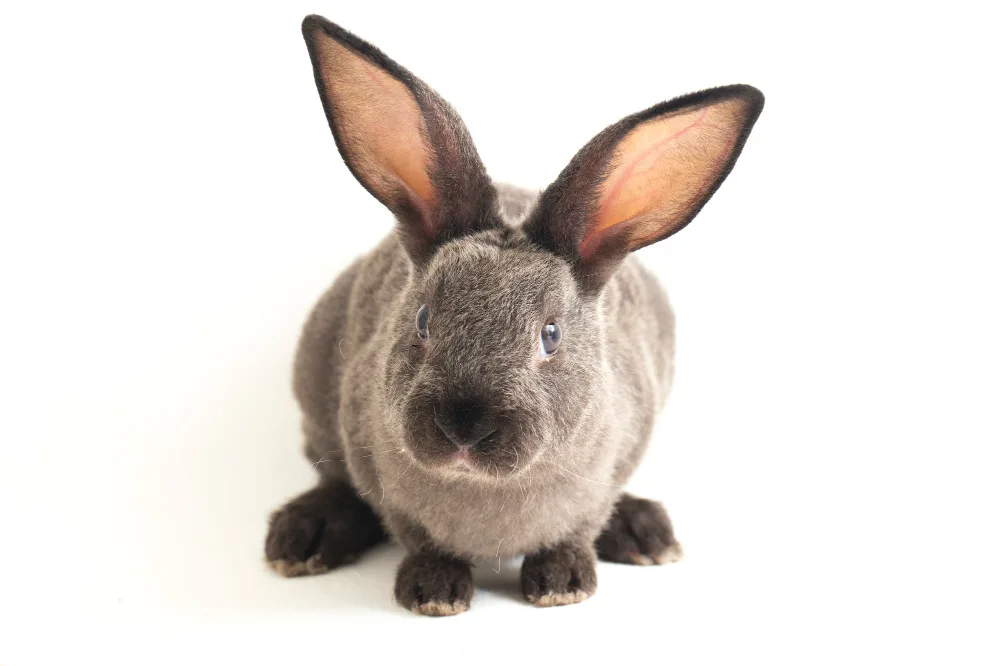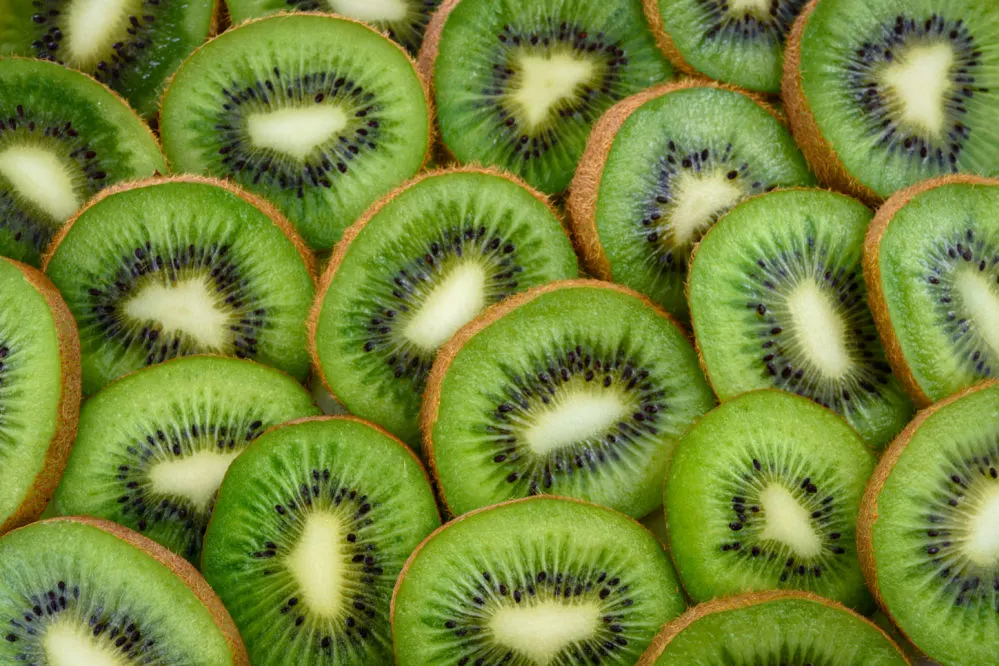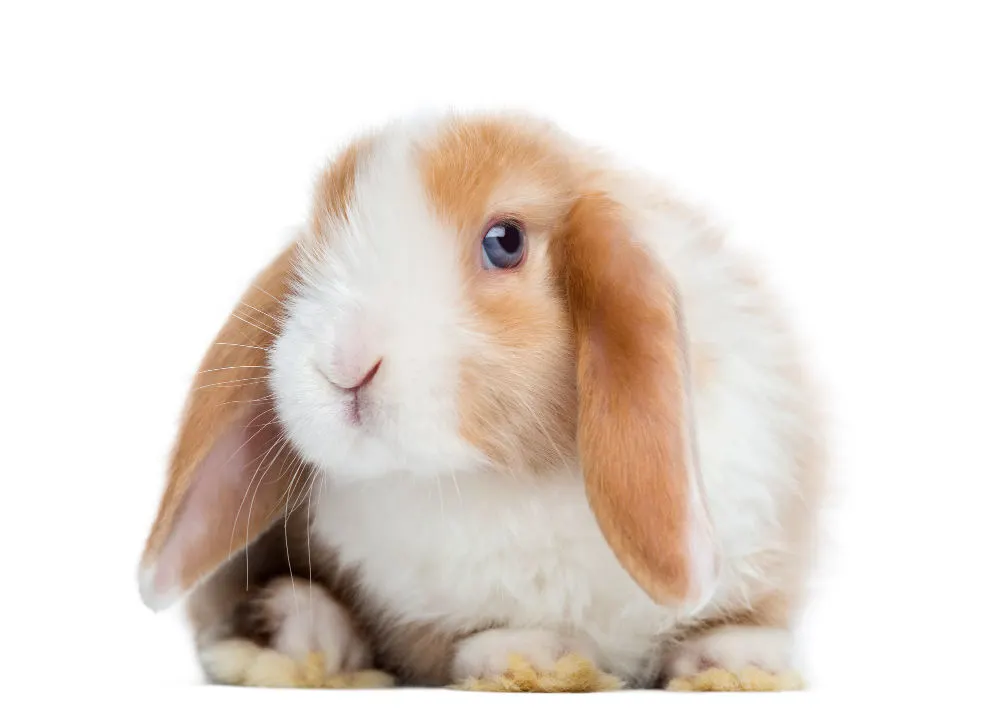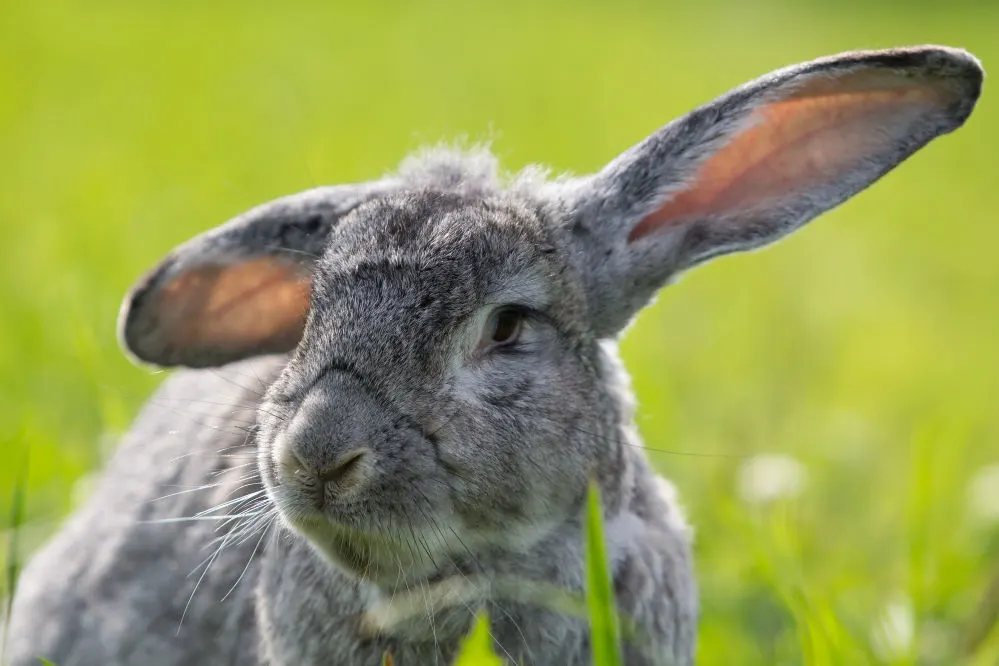“What kind of fresh fruit can I give my pet bunny?” This is a question that’s been plaguing rabbit owners for decades. That’s why this guide aims to answer just that — only this time, the focus is on kiwis.
Since indoor rabbits are a popular choice for fuzzy family members, many new pet owners struggle between what’s okay and what’s not when feeding their furry friends. A rabbit’s diet is not super complex — even the wild rabbit sticks to what they know. So, should you feed your bun-bun this sweet, juicy fruit?

Prepare for a deep dive. Here’s what you should know, from health benefits to risks.
It’s time to dissect the kiwi.
Read next: What does rabbit poop look like?
Is kiwi safe for your pet bunny?
Short answer: yes, kiwi is safe for rabbits to consume. However, this tasty treat should not be one of the main parts of a rabbit’s diet. The amount of sugar can cause digestive issues and numerous other problems in your pet if fed frequently and in large quantities.
Rabbits do not naturally eat root vegetables or fruit. This does not mean that kiwi shouldn’t be an occasional treat. In fact, rabbits quite love these small fruits, and kiwis may even benefit their health in moderation. A good rule of thumb is to give your bunny kiwis in small amounts on rare occasions.
So, yes, kiwis are actually safe for bunnies, but there are more essential things to consider. How should you feed it to them? Which parts of the kiwis are fine to eat?
All of this will be covered below, so keep on reading.
Next up: Find out if strawberry tops are safe for rabbits.
How does kiwi affect your rabbit’s health?
Now that you know your rabbit can eat kiwis occasionally, you can consider how it affects their health. This knowledge lets you make more informed decisions, especially if you’re new to the bunny game.

Health benefits of feeding your pet rabbit kiwi
Despite containing more sugar than vegetables, the kiwi fruit has enough fiber to help balance the sugar levels out. This makes the kiwi a relatively healthy treat when given in intervals.
Kiwis are an excellent source of dietary fiber, vitamin C, antioxidants, and other essential nutrients like choline, lutein, and zeaxanthin. These antioxidants play a terrific role in removing free radicals from the body and fighting inflammation.
Free radicals are unstable molecules that may amplify chronic health problems like cancer and cardiovascular disease.
What’s more, the antioxidants in kiwis can help lower blood pressure in humans, which could be possible for bunnies too. Vitamin C helps boost the rabbit’s immune system, can reduce heat stress, and help increase your rabbit’s growth performance.
By now, you can see there are many benefits to feeding your rabbit kiwi fruits. However, there are also some risks you need to be aware of.
Risks of feeding your pet rabbit kiwi
Just as small quantities of kiwis can be good for your bunny’s immune system, large amounts can be dangerous.
Since kiwis have a high sugar content, like many varieties of fruits, it may lead to more than just gastrointestinal upset. Excessive weight gain and obesity are possible if your rabbit consumes a lot of sugar.

Furthermore, sugar can upset the pH balance of the rabbit’s digestive tract, which causes toxic bacteria to flourish. At this point, your rabbit is more likely to suffer from GI stasis (gastrointestinal stasis), a common disorder in pet rabbits that are fed an inappropriate diet.
This condition slows down the rabbit’s digestion process as there’s no longer enough fiber to keep things going. When gi stasis occurs, it leads to issues like pain, trapped gas, and sometimes even death.
Other possible health problems like a sore mouth, bloating, and abdominal discomfort could be caused by oxalic acid, an organic compound in kiwis. This only applies through excessive intake, though, as small amounts of oxalates won’t harm your bunny.
So, if, by chance, a rabbit has consumed kiwis at a ridiculous rate, they could end up suffering from unpleasant toxic effects.
How to feed kiwi to your rabbit
When feeding kiwis to rabbits, start off by feeding them a small piece about the size of a tablespoon, or 0.75 ounces (21.25 grams). This ensures that your furry friend gets sweet nibbles instead of excessive chunks. Also, stick to organic kiwis as they contain less harmful pesticide residue.
Can a rabbit eat kiwi skin?
Rabbits can definitely eat kiwi peels or skins. In fact, these are even healthier for them than the fruit. Make sure you thoroughly wash them beforehand to remove any pesticide residue.
Can a rabbit eat kiwi seeds?
Unlike apple seeds, kiwi seeds are perfectly safe for rabbits to consume.
Can a rabbit eat kiwi leaves?
Similar to the skin of a kiwi, the leaves are actually much better for your rabbit than the flesh.
Can a rabbit eat dried kiwi fruit?
Avoid giving your rabbit dried kiwi or any dried fruits, for that matter. That’s because dried fruit has reduced water content and contains far more sugar than usual fruits.
Golden kiwis vs. green kiwis
Golden kiwis are a good source of vitamin C, whereas green kiwi fruit contains more oxalic acid. As you now know about the effects of oxalates, it would be better to opt for golden kiwis.
How much kiwi should be in your rabbit’s diet?
The less sugar, the better, so it shouldn’t be part of your rabbit’s daily diet. If you want to give your pet the occasional treat, you can add small portions every other week. You want to aim for no more than two tablespoons or 1.5 ounces (42.5 grams) of kiwi once or twice per week.
Anything more than this, and your fur baby may start experiencing the adverse effects of too much kiwi.
When should you avoid feeding your rabbit kiwi?
While adult rabbits have no issue digesting kiwis, you should not feed any kind of fruits to newborn kits. Even after they’ve been weaned from the mother’s milk, you still don’t want to introduce foods with high natural sugar too soon.
Baby rabbits have sensitive tummies and should stick to things like fresh hay, small amounts of pellets, and, later on, various veggies.

Main takeaway: Kiwis, along with other berries, should only be introduced to a kitten after they’ve reached an age of 12 weeks and more.
It also depends on your rabbit’s preference. If you see that they enjoy other fruits and experience no complications afterward, you can give kiwi a go. In contrast, if your rabbit seems disinterested in fruit and shows signs of diarrhea and lethargy, you should skip out on it.
Can rabbits eat kiwi? | Wrapped up
It’s always a good idea to do research or consult your local vet before introducing new foods to your bunny’s diet.
Do not waste your money on buying your furry family a punnet of kiwi; instead, stick to what has already been proven to aid in a healthy diet. This includes fresh water and fresh vegetables such as dark leafy greens like bok choy, romaine lettuce, and broccoli greens.
Besides veggies, provide things like grass hay, dandelion greens, and pellets for strong and healthy bun-buns.
Most fruits like kiwis and mangoes contain too much sugar to be part of your bunny’s everyday diet. But a sweet treat to reward good behavior here and there won’t hurt your little fuzzball.
Speaking of fruit, find out if mangoes are safe for rabbits.
Steph Dyson is a travel journalist by trade but a lover of all small pets. She’s been a pet mum to everything from gerbils to guinea pigs, rabbits to hamsters, and fish to dogs of all shapes and sizes. She wants to share her years of experience with small pets and make Small Pet Guides the go-to website for pet owners seeking information and care advice.
